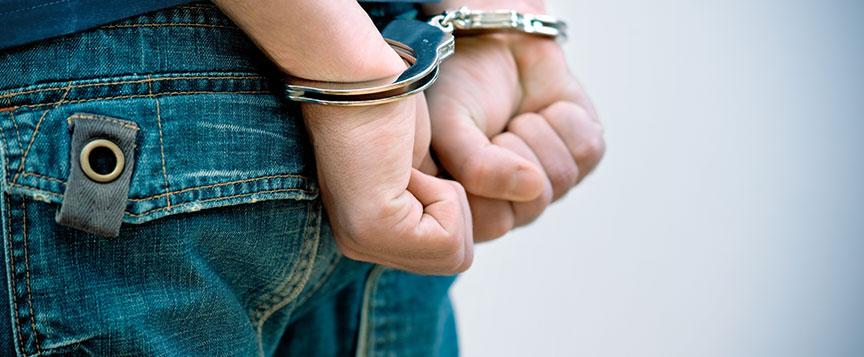DuPage County Juvenile Defense Attorney

Lawyers Defending Teens and Children in Elmhurst and Hinsdale
When your child is accused of a crime, it is natural for parental instincts to kick in and declare, "Not my baby!" Your emotions can run the gamut from anger to guilt: "What did I do wrong? Why did my kid do that?" But once you get past that initial shock, you have to figure out how best to protect your child's rights and their future, and how to get the best possible outcome for him or her within the Illinois juvenile justice system. One helpful thing to do early on is to review the steps of the process that your child will go through, from arrest to final release from the juvenile justice system.
The attorneys at Kathryn L. Harry & Associates, P.C. understand that many factors lead juveniles to commit crimes, including simple immaturity and impulsiveness, peer pressure, drug/alcohol misuse, and even mental health issues such as depression. We will approach your child's case with the greatest sensitivity, understanding that a juvenile arrest is--and will continue to be for months to come--an extremely stressful experience for both parent and child.
The Illinois Juvenile Justice System
When a youth under age 18 is involved in an incident that could lead to criminal charges, they will be processed through the Illinois juvenile justice system. There are only a few circumstances in which an under-18 child will be automatically transferred to adult criminal court: (1) 17-year-olds charged with any felony, (2) youth age 15 and up charged with first degree murder, aggravated criminal sexual assault, or specific offenses involving firearms, and (3) youth age 13 and up accused of first degree murder.
While each circuit court operates independently of the others, the Illinois juvenile justice process generally has five main stages.
1. Arrested and Taken into Police Custody. The Illinois Juvenile Court Act (705 ILCS 405/5-401) governs the arrest and custody of minors. A minor aged 12 and up may be held in a county jail or municipal lockup for no more than 24 hours when arrested for a crime of violence and no more than 12 hours when arrested for other offenses; a minor under 12 years old may not be held for more than 6 hours. After that, minors age 10 to 17 can be detained only in a facility that complies with certain statutory standards.
The police may release the youth with no consequences or may give the youth a station adjustment, in which case the youth is released to a parent with conditions such as obeying curfew, attending school, performing community service, and/or participating in social services.
If the youth is formally charged with a violation of the law, stage 2 begins.
2. Pre-Trial: Detention Screening, Detention Hearing, and Intake Screening. Youth aged 10 and up will receive a detention screening, usually done by a juvenile probation or detention officer, to assess whether the youth should be detained in a secure facility, assigned to non-secure shelter care, confined to home with monitoring, required to appear at day and/or evening reporting centers, or released without conditions to parents. Screeners consider factors such as flight risk and whether the youth is a danger to himself or the community.
If the screening results in a decision for detention, the minor is entitled to a detention hearing before a judicial officer within 40 hours after the arrest, excluding weekends and holidays (705 ILCS 405/5-501). The youth must meet with legal counsel prior to the hearing and be represented at the hearing, which will determine if the youth should be detained until trial or for 30 days, whichever comes first.
The next step is a juvenile intake screening by the state's attorney, after which the prosecutor will decide whether to file juvenile court charges (a delinquency petition), put the youth in a diversion program, give the youth a probation adjustment (informal supervision for 12 months), or transfer the case to adult criminal court.
3. Plea Agreement or Trial (Adjudication Hearing). Juveniles are generally entitled only to a bench trial (not a jury trial), which must be held within 120 days of the youth's demand for trial. If the judge finds the allegations are supported by evidence beyond a reasonable doubt, the youth will be "adjudicated delinquent," the equivalent of a guilty verdict in adult court.
4. Sentencing and Punishment. Following a guilty verdict, there will typically be a separate sentencing hearing at later date. The judge may order social investigation reports, typically conducted by probation officers, to obtain information about the youth relevant to sentencing, including physical and mental history and condition as well as personal behavior and family history.
5. Discharge. Upon completion of the sentence, the youth will be discharged from the juvenile system.
Juvenile Defense Lawyers in DuPage County
If your child has been arrested, you will want to involve a skilled defense attorney at the earliest possible moment to ensure that the child's legal rights are guarded throughout the process. The attorneys of Kathryn L. Harry & Associates, P.C. have decades of experience defending under-18 clients against criminal charges. For a free consultation, contact our office at 630-472-9700. We provide legal counsel to clients in Addison, Downers Grove, Elmhurst, Hinsdale, Lombard, Oak Brook, Wheaton, and Westmont.
 1200 Harger Road, Suite 830, Oak Brook, IL 60523
1200 Harger Road, Suite 830, Oak Brook, IL 60523







